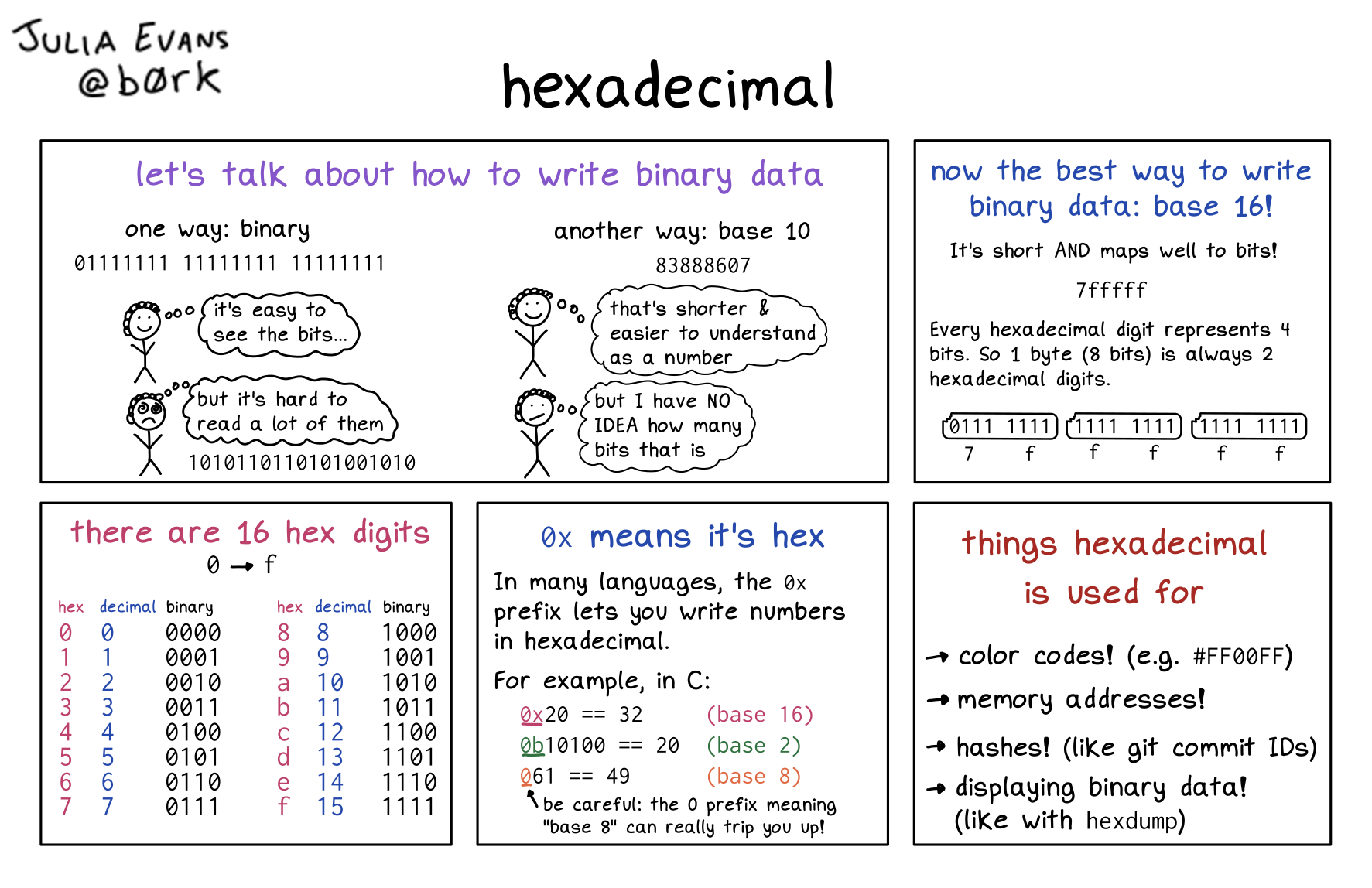
Here's a preview from my zine, How Integers and Floats Work! If you want to see more comics like this, sign up for my saturday comics newsletter or browse more comics!
 get the zine!
get the zine!
read the transcript!
panel 1: let’s talk about how to write binary data
one way: binary
01111111 11111111 11111111
it’s easy to see the bits…
1010110110101001010
but it’s hard to read a lot of them
another way: base 10
83888607
but I have NO IDEA how many bits that is
panel 2: now the best way to write binary data: base 16!
It’s short AND maps well to bits!
7fffff
Every hexadecimal digit represents 4 bits. So 1 byte (8 bits) is always 2 hexadecimal digits.
panel 3: there are 16 hex digits: 0 → f
| hex | decimal | binary |
| 0 | 0 | 0000 |
| 1 | 1 | 0001 |
| 2 | 2 | 0010 |
| 3 | 3 | 0011 |
| 4 | 4 | 0100 |
| 5 | 5 | 0101 |
| 6 | 6 | 0110 |
| 7 | 7 | 0111 |
| 8 | 8 | 1000 |
| 9 | 9 | 1001 |
| a | 10 | 1010 |
| b | 11 | 1011 |
| c | 12 | 1100 |
| d | 13 | 1101 |
| e | 14 | 1110 |
| f | 15 | 1111 |
panel 4: 0x means it’s hex
In many languages, the 0x prefix lets you write numbers in hexadecimal.
For example, in C:
0x20 == 32 (base 16)
0b10100 20 (base 2)
061 == 49 (base 8)
be careful: the 0 prefix meaning “base 8” can really trip you up!
panel 5: things hexadecimal is used for
color codes! (e.g. #FF00FF)
memory addresses!
hashes! (like git commit IDs)
displaying binary data! (like with hexdump)